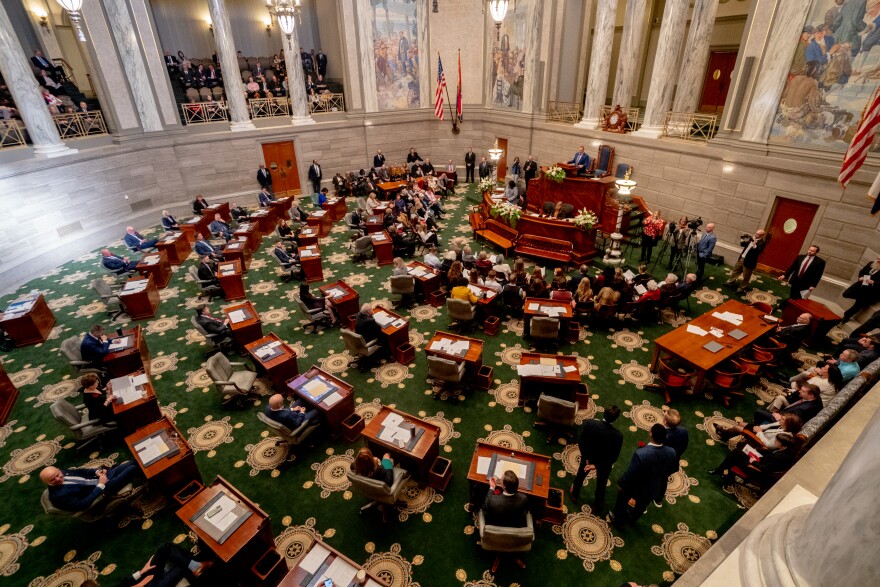On the surface, it may seem a little odd that five Republicans want to be Missouri’s lieutenant governor.
The job doesn’t have much tangible power. The responsibilities include presiding over the Missouri Senate, serving on state boards and commissions, and taking over as governor if their predecessor leaves office.
But with Lt. Gov. Mike Kehoe running for governor, five GOP candidates have stepped up to replace him: House Speaker Dean Plocher, Sen. Holly Rehder, former Sen. Bob Onder, Franklin County Clerk Tim Baker and former Republican St. Louis County executive nominee Paul Berry III.
Onder became the latest candidate in the contest on Monday, telling a room full of supporters in Richmond Heights that “with your help and the right leadership we can make Missouri great again.”
Onder has put $500,000 of his own money into his campaign account. His brother, James Onder, also donated $500,000 to a political action committee that could support Onder’s campaign.
“When I'm lieutenant governor, we will continue to protect life, we will continue to protect the Second Amendment, we will defund Planned Parenthood and DEI,” Onder said. “We will protect Missourians wallets by cutting taxes and spending and we'll get communist China out of Missouri.”
In recent history, lieutenant governors have played a relatively minor role in state legislative proceedings. But they can make an impact. In 2004, then-Democratic Lt. Gov. Joe Maxwell made it more difficult procedurally for the GOP-controlled Senate to pass legislation.
And the GOP primary for lieutenant governor in 2016 turned out to be critical, as the winner of that contest — then-state Sen. Mike Parson — ultimately became governor in 2018 after Eric Greitens stepped down amid a scandal.
“Mostly, I believe what the lieutenant governor can do is work with his colleagues and work with the governor to exert leadership,” Onder said. “But there's no question the lieutenant governor cannot do it alone.”
In addition to the five Republican candidates, state Rep. Richard Brown of Kansas City is running for lieutenant governor as a Democrat.
Copyright 2023 St. Louis Public Radio. To see more, visit St. Louis Public Radio.



